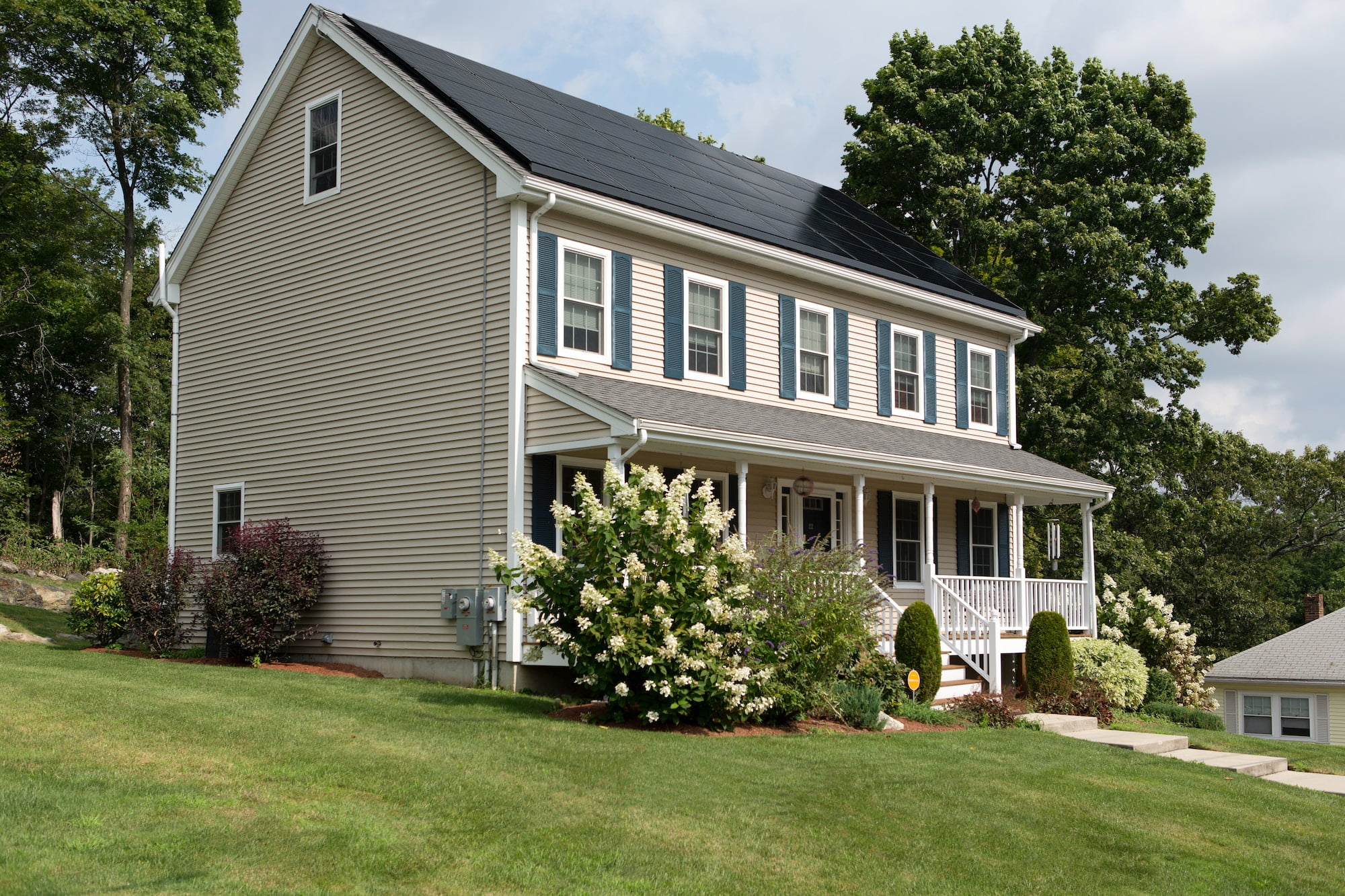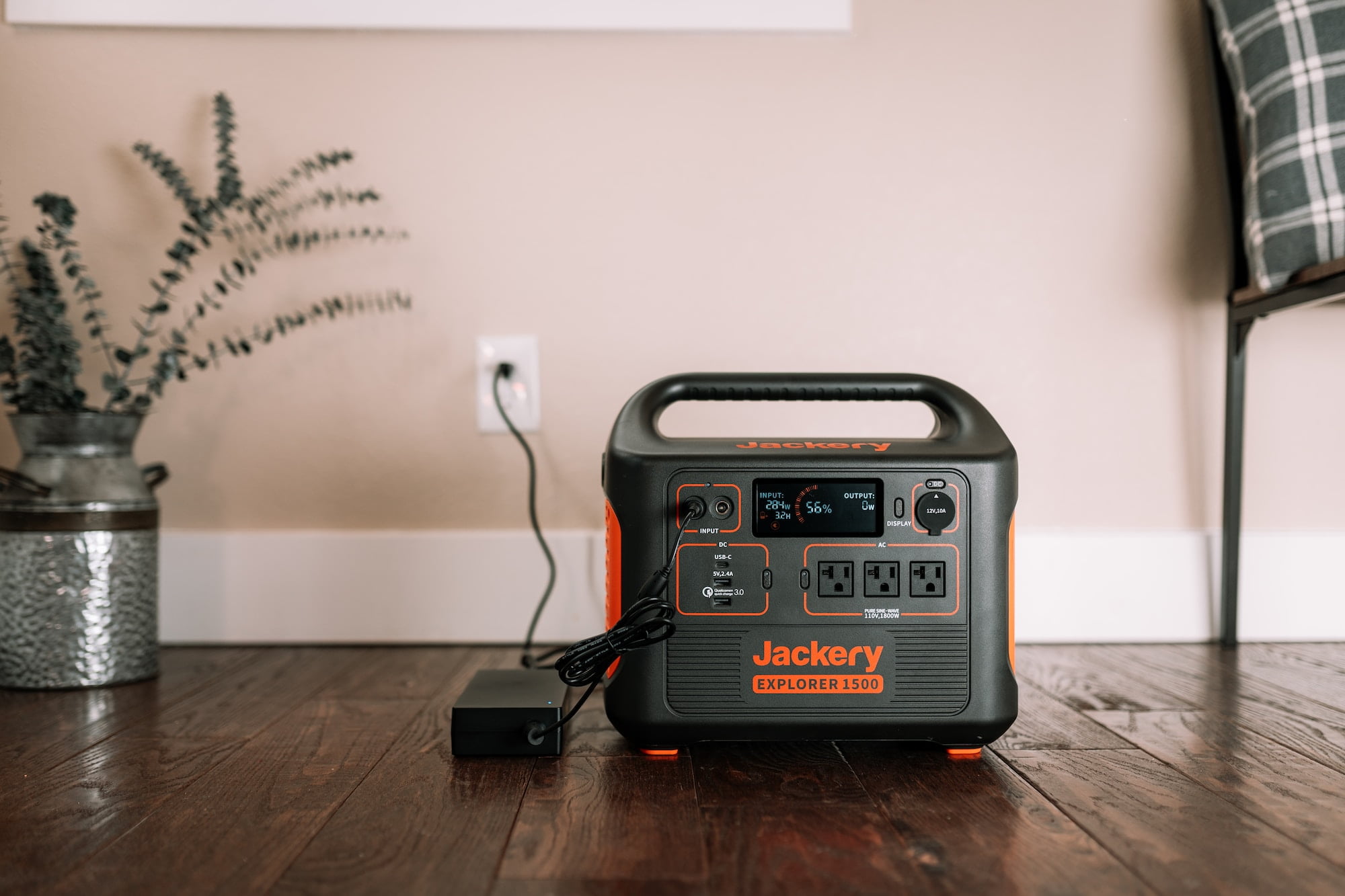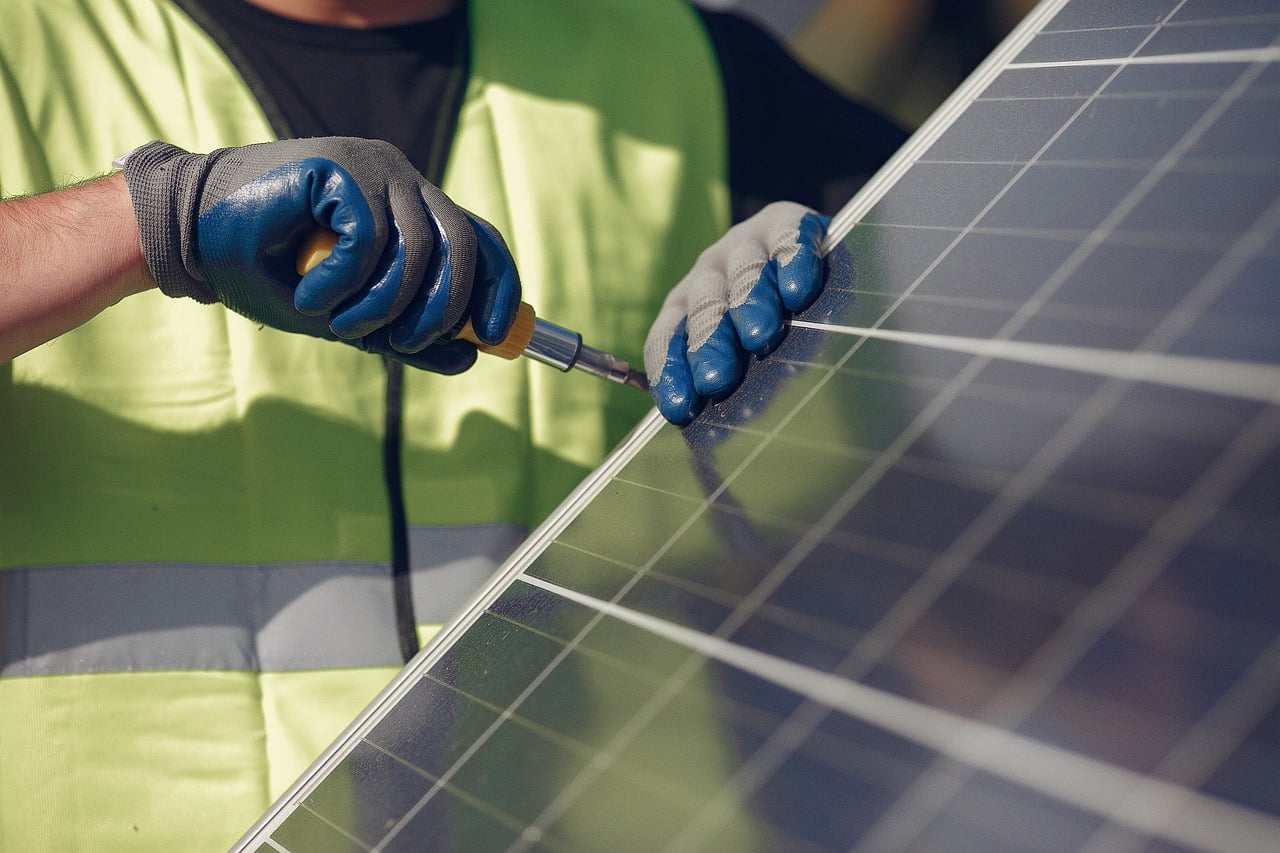Solar energy is rapidly gaining popularity among homeowners who want to reduce their carbon footprint, save on energy costs, and tap into a renewable power source. With the sun providing a plentiful and eco-friendly energy supply, it’s no wonder more people are considering solar panels for their homes. This guide will delve into the basics of residential solar panels, guiding you through choosing the right solar energy system for your home.
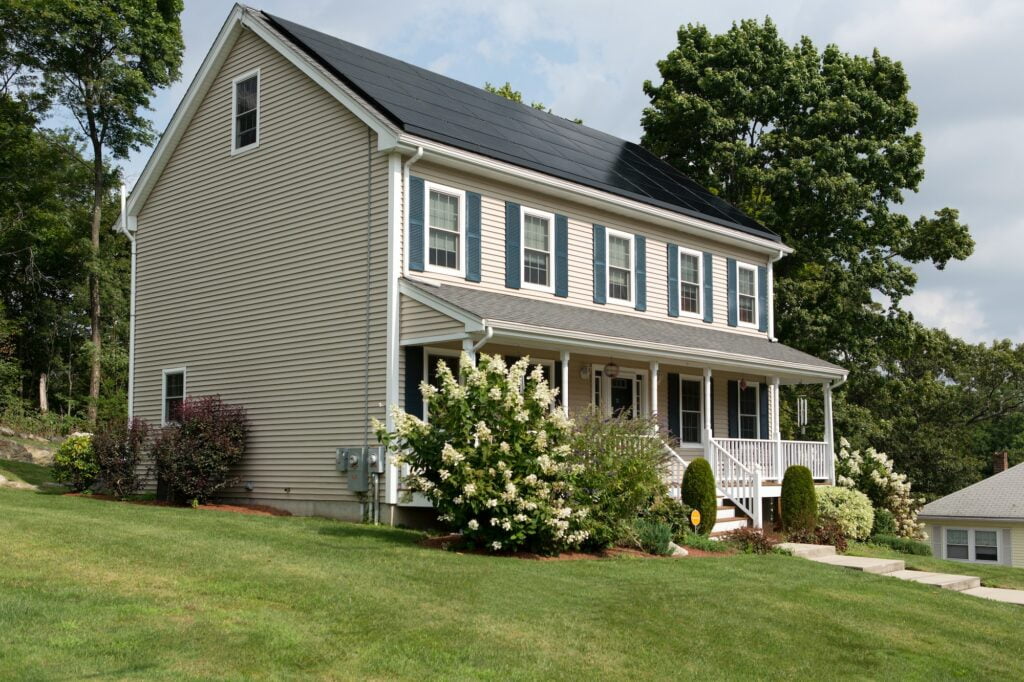
Why Solar Energy?
Solar energy provides numerous benefits that make it an attractive option for homeowners:
- Environmental Benefits: Solar energy is a clean and renewable power source, which means it does not produce harmful greenhouse gas emissions or contribute to climate change.
- Financial Benefits: You can reduce or even eliminate your monthly utility bills by generating your electricity. In addition, solar panels can increase your property value, making it a wise investment.
- Energy Independence: Solar energy allows you to reduce your dependence on fossil fuels and the traditional power grid. This means you’ll have greater control over your energy consumption and costs.
- Reliability: Solar panels have no moving parts, which makes them incredibly low-maintenance and reliable. Solar panels can last for 25-30 years or more with proper installation and care.
Understanding Solar Energy Basics
To better grasp the concept of solar energy, it’s essential to understand a few key terms and concepts:
- Photovoltaic (PV) Effect: The process of converting sunlight into electricity. PV cells, the primary component of solar panels, are designed to capture sunlight and convert it into usable electricity.
- Solar Array: A group of interconnected solar panels that generate electricity.
- Inverter: A device that converts the direct current (DC) electricity generated by solar panels into alternating current (AC) electricity, used to power your home appliances and devices.
- Net Metering: A billing arrangement with your utility company that allows you to return excess electricity from your solar panels to the grid. In return, you receive credits on your electricity bill.
- Grid-Tied System: A solar energy system connected to the traditional power grid. This system allows you to use solar energy when available and draw from the grid when it’s not.
- Off-Grid System: A solar energy system that operates independently of the traditional power grid. Off-grid systems require battery storage to provide electricity when the sun is not shining.
- Hybrid System: A solar energy system that combines grid-tied and off-grid elements, typically with battery storage. This system offers the best of both worlds, allowing you to use solar energy when available and draw from the grid or batteries when it’s not.
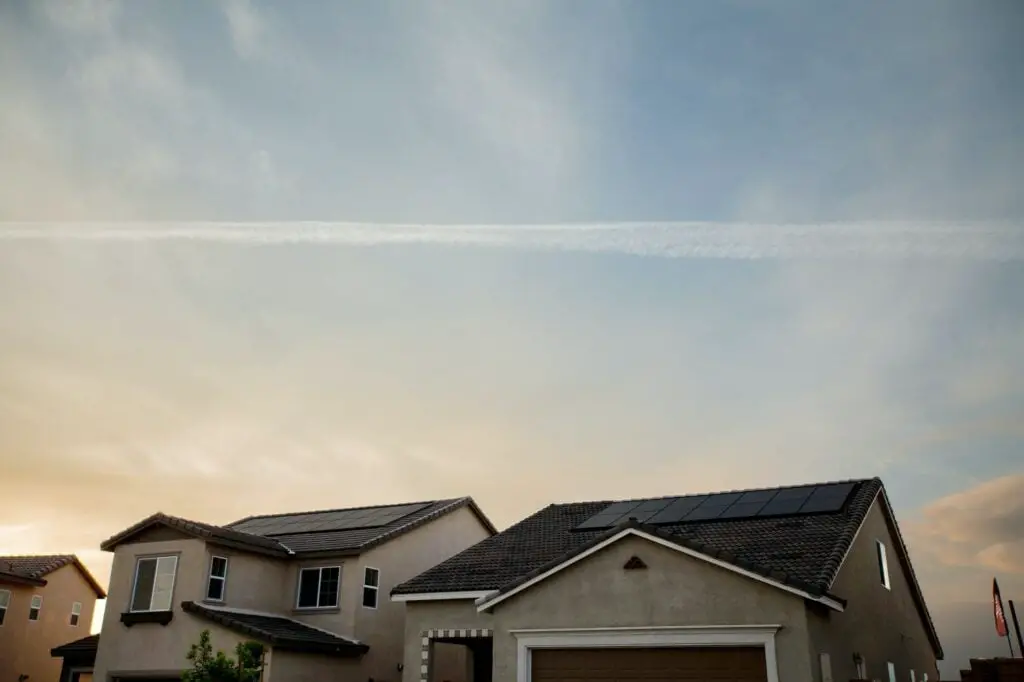
Types of Solar Panels
Residential solar panel installations primarily use three types of solar panels, each with its unique advantages and disadvantages:
Monocrystalline
- These panels are created from a single crystal structure, resulting in a uniform, dark appearance.
- Monocrystalline panels offer high efficiency, typically ranging from 15-22%.
- They are more expensive than other panels due to the manufacturing process.
- However, these panels perform well in low-light conditions.
Polycrystalline
- Polycrystalline panels are made from multiple crystal structures, giving them a speckled blue appearance.
- They offer slightly lower efficiency, typically ranging between 13-17%.
- Generally, these panels are less expensive than monocrystalline options.
- They perform well in various conditions, making them a versatile choice.
Thin-film
- Thin-film panels are manufactured from amorphous silicon, cadmium telluride (CdTe), and copper indium gallium selenide (CIGS).
- These panels offer lower efficiency levels, typically between 10-12%.
- Thin-film panels are less expensive than other types of panels.
- Their flexible and lightweight nature makes them suitable for broader applications, such as curved or irregularly shaped roofs.
Factors to Consider When Choosing Solar Panels
Efficiency
- Efficiency refers to the percentage of sunlight a solar panel can convert into electricity.
- Higher-efficiency panels require less space but may have a higher price tag.
- Consider your available roof space and budget when choosing the efficiency of your solar panels.
Cost
- The overall cost of a solar panel system includes not just the panels but also installation, permits, and necessary equipment.
- Research local incentives, tax credits, and rebates that can help offset the initial investment.
Durability
- Solar panels are built to withstand various weather conditions and typically have a 25-30 years lifespan.
- Look for panels with a strong warranty to protect yourself in case of any issues.
Aesthetics
- Solar panels come in different colors and designs, impacting your home’s overall appearance.
- Choose a panel type that complements your home’s exterior and meets your aesthetic preferences.
Location and Climate
- The efficiency of solar panels can be affected by your location’s climate and the amount of sunlight received throughout the year.
- Panels perform best in areas with abundant sunshine and mild temperatures.
- Consult with a solar installer to determine the best solar panel system for your location and climate.
Frequently Asked Questions
How much do residential solar panels cost?
How much can I save on my electricity bill with solar panels?
How long do solar panels last?
Do solar panels work in cloudy or snowy weather?
Will solar panels cause damage to my roof?
Can I go off-grid with solar panels?
Do I need a battery storage system with my solar panels?
Are there financing options available for solar panel systems?
How long does it take to recoup the initial investment in solar panels?
Installation Process
- Find a reputable solar installer. Seek recommendations from friends, family, or online reviews. Ensure the installer is certified and experienced.
- Site assessment and design. The installer will visit your home to assess your roof, available sunlight, and energy needs. They will create a custom system design based on this assessment.
- Permits and paperwork. The installer will typically handle the necessary permits and paperwork for your local municipality and utility company.
- Installation. The installation process usually takes 1-3 days, depending on the size and complexity of the system. Ensure your installer follows best practices and adheres to local building codes and regulations.
- Inspection and activation. Your local building department or utility company will conduct a final inspection. Once approved, your solar panel system will be activated, allowing you to start generating clean energy.
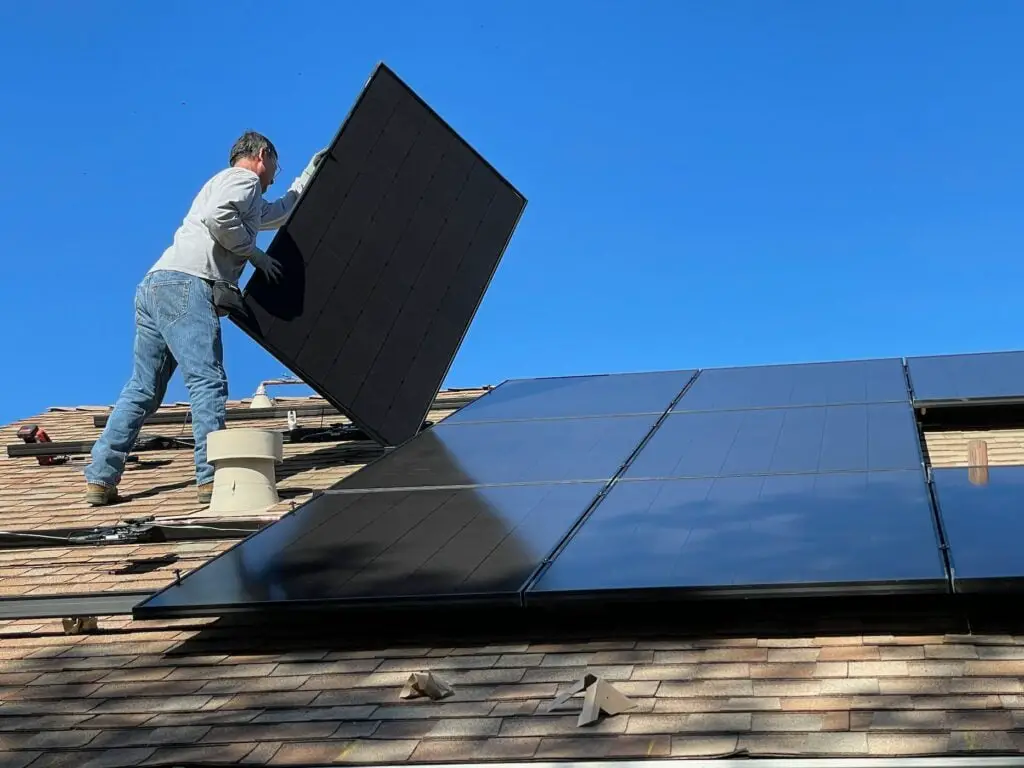
Maintenance and Monitoring
Solar panels are relatively low-maintenance, but keeping them clean and debris-free is essential to ensure optimal performance. Regularly check your panels for dust, dirt, or bird droppings, and clean them using a soft brush, cloth, and water.
Monitoring your solar panel system’s performance is also crucial. Many solar panel systems come with monitoring software or apps that allow you to track your energy production and consumption. This will help you identify potential issues and ensure your system operates efficiently.
Financial Incentives and Benefits
Many governments and utility companies offer financial incentives, such as tax credits, rebates, or grants, to encourage the adoption of solar energy. Be sure to research the available incentives in your area, as they can significantly reduce the upfront cost of your solar panel system.
In addition to these incentives, solar panels can increase your property value, making it a wise investment for homeowners. A Lawrence Berkeley National Laboratory study found that homes with solar panels sell for a premium compared to homes without solar installations. Buyers are increasingly attracted to solar panels’ long-term energy savings and environmental benefits.
Wrapping Up
Investing in a residential solar panel system is an excellent way to reduce your carbon footprint, save energy costs, and increase your property value. By understanding the different types of solar panels and the factors to consider when choosing a system, you can make an informed decision that meets your energy needs and budget. Don’t forget to explore local financial incentives to help offset the initial investment. As solar technology advances and becomes more accessible, it’s an excellent time to join the growing number of homeowners harnessing the sun’s power for a cleaner, greener future.
Now that you have a deeper understanding of residential solar panels, you can confidently move forward with your solar journey. Remember to research and compare different solar panel types, consult with a reputable solar installer, and take advantage of the financial incentives available in your area. With the right knowledge and resources, you’ll be well on your way to enjoying the numerous benefits of solar energy.

